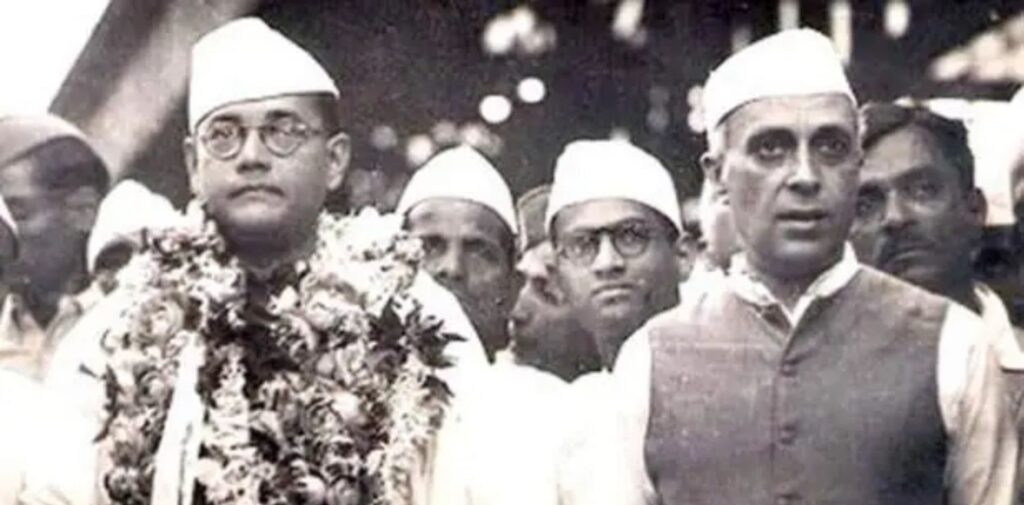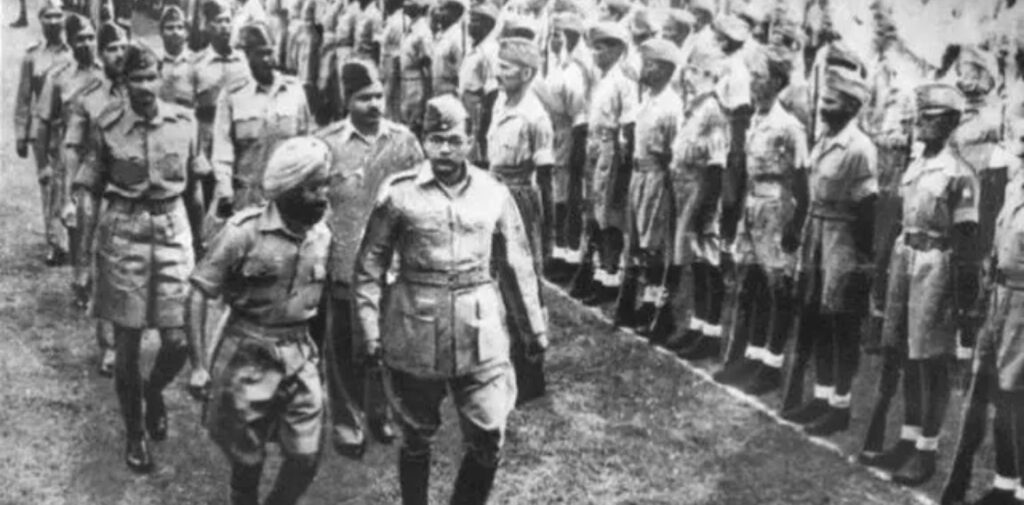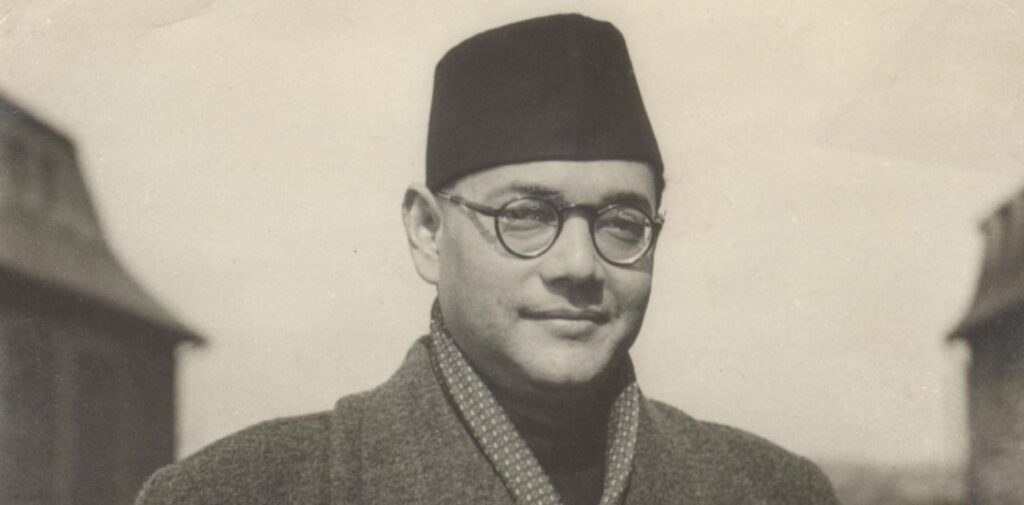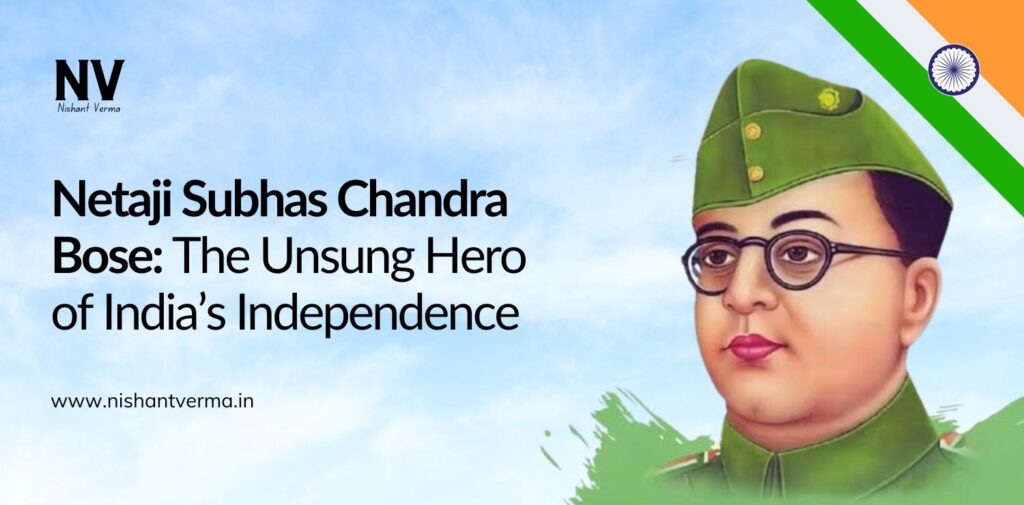As we celebrate the hard-won independence of India, it is essential to remember the true heroes who made our freedom possible. One such towering figure is Netaji Subhas Chandra Bose, a man whose relentless pursuit of India’s liberation from British rule has often been overshadowed by other narratives in history. While many so-called leaders presented themselves as the sole architects of India’s freedom, it is crucial to recognize Bose’s unparalleled contributions, which have been systematically downplayed or ignored in mainstream historical accounts. Netaji was not just a freedom fighter; he was a revolutionary visionary, a strategic mastermind, and a true patriot whose love for his country knew no bounds.
Early Life: The Making of a Revolutionary
Subhas Chandra Bose was born on January 23, 1897, in Cuttack, Odisha, into a well-respected and affluent family. His father, Janakinath Bose, was a prominent lawyer, and his mother, Prabhavati Devi, was a devout and caring homemaker. Bose was an exceptional student, displaying a keen intellect and a deep sense of nationalism from a young age. He excelled academically, eventually graduating from Presidency College in Kolkata and then securing a place at the University of Cambridge in England to prepare for the Indian Civil Service (ICS) exam.
Although Bose cleared the ICS exam with flying colors in 1920, his heart was never in serving the British administration. His innate sense of justice and his burning desire for India’s freedom led him to resign from the ICS in 1921, a decision that shocked his family and peers. This bold move marked the beginning of Bose’s journey as a dedicated freedom fighter, willing to forsake a promising career for the sake of his motherland.

The Rise of a Leader: Bose and the Indian National Congress
Upon returning to India, Bose plunged into the freedom movement, joining the Indian National Congress (INC) under the mentorship of Chittaranjan Das, a prominent nationalist leader. Bose quickly rose through the ranks, becoming the President of the All India Youth Congress and the Secretary of the Bengal State Congress. His dynamic personality, coupled with his exceptional organizational skills, made him a force to be reckoned with within the Congress.
However, Bose’s radical approach often put him at odds with the more moderate leaders of the Congress, including Mahatma Gandhi. While Gandhi advocated for non-violent resistance and negotiations with the British, Bose believed that only direct action, including armed struggle, could bring about India’s independence. This ideological clash eventually led to a rift between Bose and the Congress leadership.
In 1938, Bose was elected as the President of the Indian National Congress, a position that allowed him to push for a more aggressive stance against the British. His vision for India’s future was clear: complete independence from British rule, not just dominion status as some Congress leaders were willing to accept. Bose’s uncompromising stand resonated with many young nationalists, but it also alienated him from the more conservative elements within the Congress.
The INA and the Struggle for Freedom
The outbreak of World War II in 1939 provided Bose with a unique opportunity to further his cause. He saw the global conflict as a chance to weaken the British Empire and hasten India’s independence. However, his call for a nationwide protest against Britain’s involvement in the war led to his arrest in 1940. Undeterred, Bose went on a hunger strike, which eventually forced the British to place him under house arrest.
In January 1941, in one of the most daring acts of his life, Bose escaped from house arrest and made his way to Germany via Afghanistan and the Soviet Union. In Germany, he sought the support of the Axis powers, believing that their victory over Britain would pave the way for India’s freedom. Although Bose’s alliance with fascist regimes has been a point of controversy, it is crucial to understand that his primary goal was to secure India’s independence by any means necessary.
In 1943, Bose shifted his focus to Southeast Asia, where he took charge of the Indian National Army (INA), which had been formed by Indian prisoners of war and expatriates. Renamed as the Azad Hind Fauj, the INA, under Bose’s leadership, became a formidable force, fighting alongside the Japanese against British forces in Burma and India. Bose’s famous slogan, “Give me blood, and I will give you freedom,” electrified the Indian masses and inspired thousands to join the INA.
Bose’s efforts culminated in the establishment of the Provisional Government of Free India (Azad Hind Government) in October 1943. The government, which was headquartered in Singapore, received recognition from several Axis powers, and Bose was declared the Head of State, Prime Minister, and Minister of War. As part of this government, Bose was also appointed the Governor of the Andaman and Nicobar Islands, which were renamed Shaheed and Swaraj Islands, respectively.

Governor of Andaman and Nicobar Islands: A Forgotten Chapter
One of the lesser-known yet significant chapters in Bose’s life is his tenure as the Governor of the Andaman and Nicobar Islands. In 1942, the Japanese had occupied the islands, and in 1943, they handed over control to the Azad Hind Government as a symbolic gesture of support for India’s independence. As Governor, Bose visited the islands and hoisted the Indian tricolor flag, declaring them free from British rule.
Bose’s role as Governor was not just ceremonial; it was a strategic move to establish Indian sovereignty over territory occupied by the British. The islands were intended to serve as a base for further military operations against the British in mainland India. Bose’s actions demonstrated his commitment to achieving complete independence, not just in principle but in practice.
Unfortunately, this crucial aspect of Bose’s contribution has been largely ignored in mainstream Indian history. The focus has often been on his controversial alliances rather than his tangible efforts to liberate Indian soil from British control. By assuming the role of Governor, Bose took a significant step toward realizing his vision of a free India, even if it was in a remote corner of the subcontinent.
The Legacy of Netaji Subhas Chandra Bose: A True Patriot’s Sacrifice
Netaji Subhas Chandra Bose’s contributions to India’s independence are undeniable, yet his legacy has been marred by controversy and political maneuvering. While some have criticized his methods and alliances, it is essential to recognize that Bose was driven by a single-minded determination to free India from the shackles of colonialism. He was not content with mere negotiations or compromises; he sought complete and unequivocal independence for his country.
Bose’s disappearance in 1945 remains one of the greatest mysteries in Indian history. While the official narrative claims that he died in a plane crash in Taiwan, numerous theories suggest otherwise. Regardless of the circumstances of his death, Bose’s impact on India’s freedom struggle is profound and enduring. His call to arms and his formation of the INA ignited a sense of nationalism among Indians, challenging the British Empire like never before.
Moreover, Bose’s legacy extends beyond the battlefield. He was a visionary who believed in a free and united India, where all citizens, regardless of religion, caste, or creed, could live in harmony. His secular and inclusive vision for India stands in stark contrast to the divisive politics that often plagued the freedom movement.

A Reality Check: The True Heroes and the Misguided Narratives
As we reflect on the history of India’s independence, it is essential to acknowledge the contributions of leaders like Netaji Subhas Chandra Bose, who have often been sidelined in favor of more palatable narratives. While many leaders of the time advocated for non-violence and compromise, Bose understood that freedom could not be won without sacrifice and struggle.
It is also crucial to question the portrayal of some individuals as the sole architects of India’s independence. The reality is that the freedom movement was a collective effort, with many unsung heroes who played critical roles. Bose’s legacy has been overshadowed by those who presented themselves as the champions of non-violence, while in reality, it was the combined efforts of various strategies and leaders that ultimately forced the British to leave India.
Bose’s willingness to collaborate with Axis powers has often been used to discredit him, but it is essential to recognize that his actions were motivated by a desire to secure India’s freedom at all costs. Unlike others who were content with negotiations and concessions, Bose was willing to risk everything to achieve complete independence. His approach may have been radical, but it was born out of a deep love for his country and an unyielding commitment to its liberation.
The Undeniable Truth: Netaji’s Enduring Contribution to India’s Freedom
As we celebrate India’s Independence Day, it is time to give Netaji Subhas Chandra Bose his rightful place in the pantheon of Indian heroes. His contributions were not just in words but in actions that directly challenged the British Empire. From his leadership of the INA to his role as Governor of the Andaman and Nicobar Islands, Bose demonstrated that he was a leader who did not just talk about freedom but actively fought for it.
Netaji’s legacy is a reminder that the struggle for independence was not a monolithic movement led by a single individual or ideology. It was a multifaceted effort that included armed resistance, civil disobedience, and international diplomacy. Bose’s approach may have been different from that of other leaders, but it was no less crucial in achieving the ultimate goal of independence.
As we honor the memory of Netaji Subhas Chandra Bose, let us also recognize the many other unsung heroes who fought alongside him. These were men and women who were willing to lay down their lives for the cause of freedom, often without receiving the recognition they deserved. Bose’s story is not just about one man’s quest for independence; it is about the collective struggle of a nation determined to free itself from the yoke of colonialism.
In conclusion, Netaji Subhas Chandra Bose was not just a freedom fighter; he was a revolutionary who redefined the meaning of patriotism. His contributions to India’s independence are immeasurable, and his legacy should be celebrated and remembered by all. As we mark another year of freedom, let us pay tribute to the man who was willing to risk everything for the sake of his country and who remains an enduring symbol of India’s fight for true independence.




